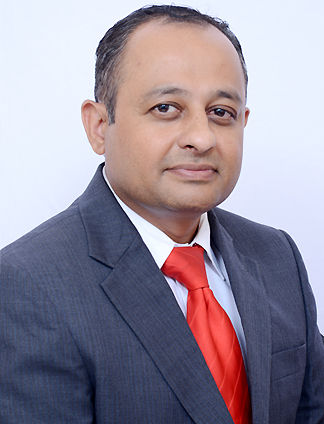Pandemic Planning in Pune: Distributing Study Medication during COVID-19
By Sandesh Patil, MBBS, DGO, MPH
 The COVID-19 pandemic presents real challenges for research teams around the world conducting clinical trials. The experience with tuberculosis studies underway at the Byramjee Jeejeebhoy Government Medical College-Johns Hopkins University Clinical Research Site (BJGMC-JHU CRS) in Pune, India, required swift action, agility, and innovation in ensuring that study participants continue to receive lifesaving care in the midst of a national lockdown.
The COVID-19 pandemic presents real challenges for research teams around the world conducting clinical trials. The experience with tuberculosis studies underway at the Byramjee Jeejeebhoy Government Medical College-Johns Hopkins University Clinical Research Site (BJGMC-JHU CRS) in Pune, India, required swift action, agility, and innovation in ensuring that study participants continue to receive lifesaving care in the midst of a national lockdown.
The WHO has prioritized TB preventive therapy, including for household contacts of people with multidrug-resistant tuberculosis (MDR-TB), as a key strategy for controlling the epidemic. One study to prevent MDR TB among household contacts of confirmed cases currently underway at the BJGMC-JHU CRS is a multinational, phase 3, randomized clinical trial to compare 26 weeks of Delamanid (DLM) versus 26 weeks of Isoniazid (INH) for preventing confirmed or probable active TB in high-risk household contacts. For this trial, titled Protecting Households on Exposure to Newly Diagnosed Index Multidrug-Resistant Tuberculosis Patients (or PHOENIx), 19 index MDR-TB cases and 12 household contacts are enrolled.
Participants on study routinely receive enough medication to last until their next scheduled clinical visit. With visits cancelled due to the lockdown, and with recovery from COVID-19 likely to be prolonged, the PHOENIx Team needed to find alternate ways to distribute medication. Mail delivery was not an option, and asking research participants to pick up medication from the CRS or at designated locations within the community was deemed too risky.
Although the PHOENIx study protocol provides for an extended administration of therapy from 26 weeks to up to 34 weeks, the team considered that only as a last resort. With the lockdown imminent, the team was under considerable pressure to develop and implement a plan to deliver enough medication to last participants through June15. While it might appear fairly straightforward, there were considerable logistical and safety issues to address:
-
Specific measures were planned for, and the team notified participants of what to expect. -
Online prescriptions were sent to the pharmacist for filling. -
Personal protective equipment (PPE)—including gloves, N-95 masks, and hand sanitizer—was provided for staff going into the field. The team decided to use glasses/goggles and helmets rather than full PPE kits, because of the optics. There is considerable stigma associated with disease, and teams presenting to households in such gear could cause problems for participants in their communities. -
Online training was provided for the safe use and disposal of protective equipment. -
Each outreach counselor was assigned a specific route in Pune or Pimpri-Chinchwad city, and a “drop and run” protocol was implemented in order to minimize personal interactions. -
The day before the drop, participants were contacted by the Outreach team, and phone screenings were conducted for COVID-19 related symptoms.
The Study team, Outreach team, Pharmacy team, and Support team worked closely on all facets of planning and implementation. The operation was successful, and the clear communication with study participants inspired further confidence in the team’s commitment to their health and wellbeing.
The planning that went into ensuring participants for one study were provided for during a health emergency served as a template for other studies at the BJGMC-JHU CRS. Specifically, the process was used for participants of the REPRIEVE study (Randomized trial to Prevent Vascular Events in HIV), the VESTED study (Virologic Efficacy and Safety of ART Combinations with TAF/TDF, EFV, and DTG) and IMPAACT 2005 (Study of Pharmacokinetic, Safety and Tolerability of Delamanid in Combination with OBR for MDR-TB in Children).
As of April 9, 2020, 25 research participants from different studies were approached for distribution of study medication during COVID-19 lockdown in India. Six outreach counselors, 2 pharmacists, 2 support staff, and many background team leaders worked to ensure that participants continued receiving care during the emergency.
